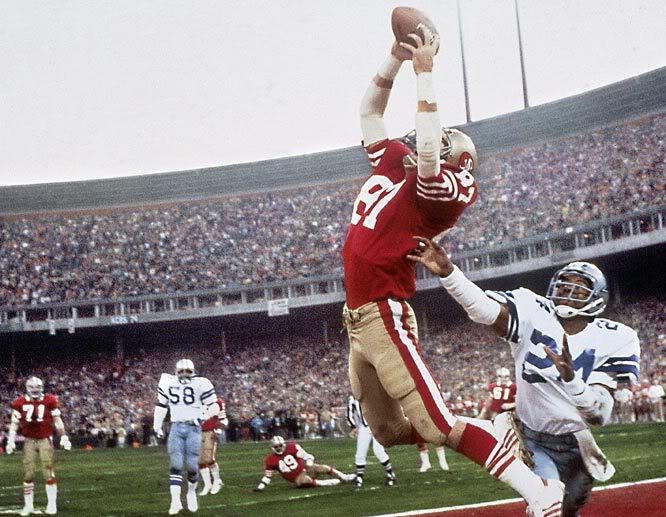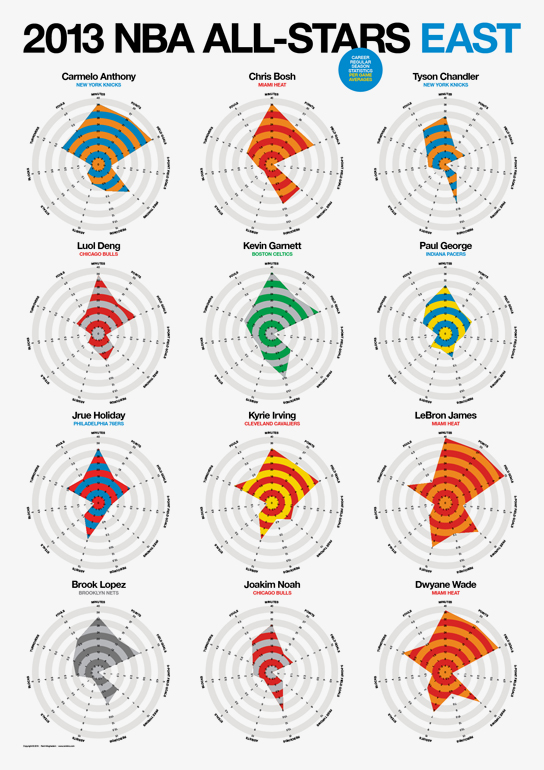Choosing your benchmarks wisely and the legacy of David Stern
Real quick 8 Man Rotation style take for a travel Tuesday. Aside, I am heading out to Oracle HCM World in my favorite city in the world Las Vegas, if you happen to be out there be sure to say 'Hi'.
Over the weekend I had a brief Tweet exchange with the HR Capitalist, Kris Dunn, and another Fistful of Talent colleague the very underrated R.J. Morris about the legacy of the very recently retired after a 30 year run Commissioner of the NBA David Stern. One of the tweets is embedded below to give a little bit of context, and also because I find embedding tweets to be kind of fun, (I know, i need to get out more).
@RJ_Morris @steveboese @thelance just read that this morning. Hard take. The real ? is what could have Stern done to close the gap with NFL.
— Kris Dunn (@kris_dunn) February 3, 2014
The gist of the conversation regarding Stern was this: By most measures of internal comparison, i.e. taking where the NBA was in terms of hard metrics like revenue, franchise values, player salaries, international growth, etc., Stern presided over a long and sustained period if incredible growth for the league. By every internal standard, the NBA is in a far, far better and more financially successful place today than it was when Stern became commissioner.
But Stern has his critics too, and rather than dig into all the specific and sometimes subtle elements of his stewardship of the NBA, let's focus on just one. Namely, that while Stern did, by most accounts, a superb job of growing the NBA, it is still far, far less popular and financially and culturally massive (at least in the USA) as the National Football League. The NFL is the proverbial 300lb gorilla of modern American sports. It has widespread appeal, its game telecasts rank among the most popular TV programs week in and week out, the the culmination of the season, the Super Bowl game, has become such an important and ubiquitous event that there are fairly serious proposals that the Monday following the game be designated as a national holiday.
The NFL is #1, by every measure that matters, and when holding up the NBA to that mirror, well then the Association falls short, a distant second really, (and possibly even third behind Major League Baseball), and consequently then Commissioner Stern must be judged as not having really been such a transcendent sports business leader.
But I think that comparison is a little unfair, and perhaps even a little premature, (even as Stern retires). I think if we let the evolution of both American professional sports, and societal and global trends play out a little longer, I think this kind of comparison, or benchmark of basketball to American football will end up looking quite a bit different, and Stern, long gone from the scene, will have to be credited for at least some of these developments.
To me, the NBA is like Apple Computers, in the latter part of the 90s. The NFL, the behemoth, is Microsoft of that same time.
Back then, Microsoft was the undisputed leader in personal and corporate computing technology, was led by a legendary and visionary Bill Gates, and simply dwarfed everyone else in its space with its vise-like grip over almost every interaction you had with a computer. Apple was still interesting, quirky, made a different kind of computer that had its adherents, but never was seen as a serious threat to the MSFT ecosystem.
And then something called the iPod came out and things started to change. You know the story and I don't need to go into all the Apple innovations and the subsequent (or concurrent) missteps from Redmond, but suffice to say the technology world in 2014 does not look anything like it did in 1998 or so.
So back to my NBA and NFL take, and the need to give Stern some room before we all start deciding about his legacy.
I submit that about 15 years from now the NBA will be almost, if not more popular (in America and globally), than the NFL for the following reasons:
1. Basketball, and by extenstion the NBA, is largely an urban or city game. The game is mostly played and celebrated, in America's big cities - New York, Chicago, Boston, L.A.. And America (and the rest of the world) is becoming a more urban place as well. As more people migrate to the larger cities, the city game, basketball, will continue to thrive, often at the expense of football, a game that requires expansive grounds on which to play, lots of expensive equipment, and the type of space not easily found in a big city.
2. Basketball is a global game, played all over the world, while American football is played (seriously) pretty much only in America. As the world shrinks, cultural and sporting phenomena like the NFL, that have only single-country relevance, will eventually become somewhat marginalized over time. While the NFL dominates the American sporting landscape, it hardly registers anywhere else in the world. The NBA, with its global reach, and high number of non-American players is far ahead of the NFL in this regard. Just witness the growing popularity of English Soccer here in the US as a small example of this trend.
3. The talent supply chain is constricting for the NFL. Due to its violent nature, more and more parents are electing to keep their kids out of full-contact football. Every football player gets injured at some point in a season, and as the NFL has learned, many of these injuries can have incredibly serious and devastating repercussions. The recent concussion-related lawsuits, settlements, and high-profile former players revealing their stories of traumatic brain injury are beginning to cast a longer and longer shadow over not just the NFL, but the beginnings or feeder systems for their talent. This will play out over time, surely, but even today if you were the parent of a very talented and gifted athlete, would you steer him toward a violent sport like football where he is likely to have at least a few concussions over time, or a sport like basketball where the injury risks are much less?
4. At the top, I said this was going to be a 'quick take', turns out I was wrong. Sorry about that.
5. The NBA understands social media and new media in general. This is certainly subjective, but if you look at how the league and its teams have embraced digital and social over the last few years, you see an organization that is more forward-thinking than most others. This is a by-product of the NBA's long time strategy that elevates and promotes its star players and personalities. Think about it, only the most ardent NFL fans can name more than a handful of players on their favorite team, and even less would be recognizable. If the new world of media and commerce is about engagement and connection, then the NBA is in a much stronger place than the NFL, where the vast majority of players are faceless and anonymous.
I probably could keep going on this, but I think I have made enough points for now, and besides, I have to get on a plane. But the bottom line to me, taking us back to the question of David Stern and his legacy I think we have to let some of these cultural and global trends play out a little longer before we dismiss Stern (and the NBA) as being somehow inferior to the NFL. Compare the NBA of 1984 to the NBA of today and then no question, Stern was a great leader and executive. Compare the NBA of 2014 to the NFL of 2014 and sure you could say he fell short, but I say we need to let these shifts develop.
Apple wasn't Apple back in 1998. But the world changes, sometimes faster, sometimes slower than we like or anticipate. And being on top of the food chain, even if you have been there awhile doesn' guarantee you that spot forever. Just ask Microsoft.
<post typed on Chromebook>

 Steve
Steve


